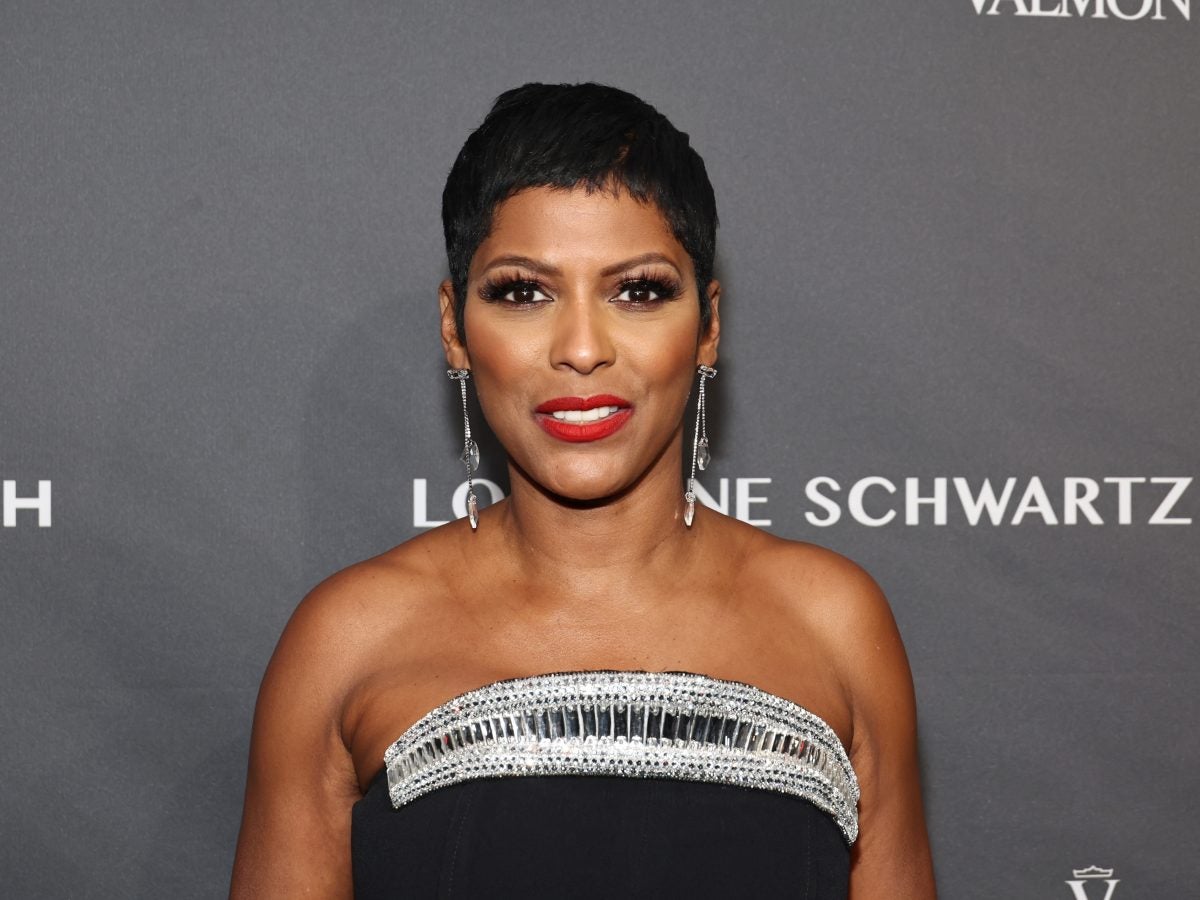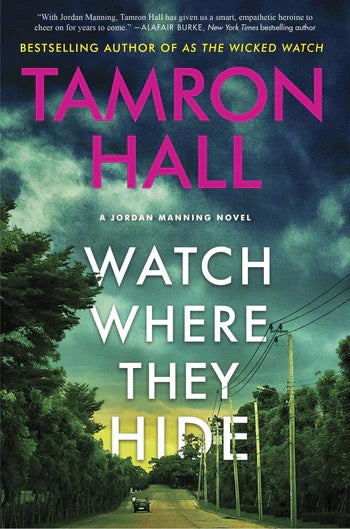
Tamron Hall is bringing Jordan Manning to raise our blood pressure with a new shocking case in Watch Where They Hide. The second novel in the Jordan Manning series follows the reporter as her career evolves in the background of another somber puzzle. ESSENCE chatted with the legendary journalist about the return of the popular character for a new trip towards justice.
Hall was nervous about putting her art into the world as an author, but readers and critics appreciated the first novel in the series As the Wicked Watch. “I did not expect people to receive the first book as wonderfully and as well as they did. It was my very first novel, my very first work of fiction,” said Hall. Her fame put the stakes slightly higher as she could not slink off into anonymity if the book was a flop. “It’s like the first time you get out to roller skates, you don’t know how it’s going to turn out. You hope you don’t fall in front of all of your friends, but the reality is you just might,” she continued. The thriller was met with grace from those who love to be engrossed in murder mysteries.
Manning deciphers through the cracks in stranger’s digital lives to help arrive at the truth. “That’s how you solve the crime. That’s how you start to put the pieces together for someone to understand what happened to you,” said Hall. Manning’s character was a magnet for “people who referred to themselves as crime junkies.” Their embrace of the dogged reporter’s commitment to getting to the truth affirmed Hall that her storytelling rang true. “It gave me the confidence, and it gave me the north star to keep going,” she said.
The gruesome elements of being a reporter are not the only authentic parts of the story. Manning faces the undermining and injustices faced by many Black women in corporate America. Hall’s intention was to “really capture what women of color in these positions often face” with her work.
Manning has climbed to the top of the journalistic food chain. Her face is being plastered around the city. She has contacts in government offices and has mastered the art of efficiency by cultivating relationships. But that doesn’t stop her subordinates from openly defying her.
“Many times women of color in particular, once you reach this level of achievement, everyone still believes they can tell you what to do and not trust your judgment,” said Hall who has publicly faced her own challenges with corporate politics. “It’s if you didn’t earn that spot that you were placed in that spot. And there is an all too often a lack of respect of how you got there.”

“Even when your name is at the top of the directory, everyone somehow feels that you are not the leader,” she added.
In the first novel, the protagonist saw herself as the haunting figure at the center of her quest for truth. This story requires Manning to connect with people who don’t show up in the world the way she does.
Hall made a conscious choice to have the character aid someone from a different background. She used her Texas upbringing to help craft a bold character that would clash with Manning’s city flair. “I didn’t have to dig too deep,” she joked. Hall accurately painted other settings with the help of research and by tapping into her background as a crime reporter who often traveled to rural areas.
She described the difficult conversations Manning had and the unpleasant realities she faced in between cups of coffee at a family home in the historic Black neighborhood of Sag Harbor. The voices are crafted clearly and believably.
Together, Manning and another character face the realities of a world filled with the harsh realities of intimate partner violence. Their racial and socio-economic differences don’t preclude them from interacting with the vulnerabilities erected by male rage.
“I wanted this case to come from a different world than expected because, as a journalist every day I walk in the newsroom, I don’t know my assignment, and I can’t do the job just when the person reminds me of my roots or reminds me of my culture,” said Hall.
“Because that is the job. You don’t get to arrive at, as I did, at a crime scene or even a natural disaster and say listen, I’m only going to talk to the Black people who’ve lost their homes in this flood, or I’m only going to talk to the Black families at this event, you as a journalist talk to everyone.”
The subject doesn’t need to be someone the reporter would have clinked espresso martini glasses with at brunch to deserve her attention. She doesn’t need to be convinced that this person matters.
Manning leads through empathy, something Hall believes in celebrating. “Jordan is irreverent. She’s funny. She’s tough. She’s tenacious, she’s dedicated. And most of all, she’s compassionate.” That compassion takes her down another unexpected path in this story intended to honor “the real-life journalists who are working tirelessly” to follow the trails of our sisters, mothers, cousins, and friends.
“This was about and is about what happens when women work together, what happens when we see each other, what happens when compassion enters the conversation.”
Watch Where They Hide: A Jordan Manning Novel is now available where books are sold.